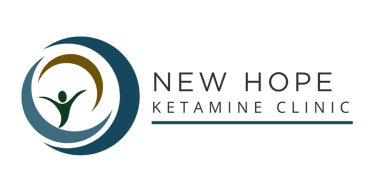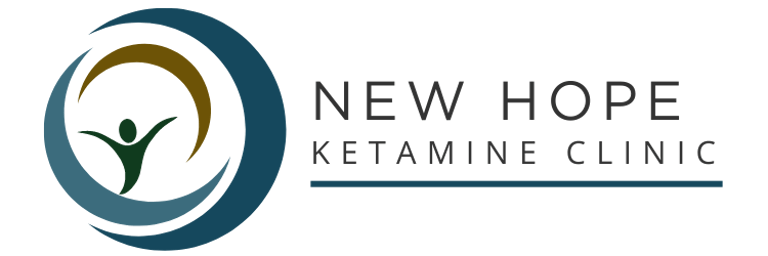Address: 21660 W Field Pkwy, Suite 301, Deer Park, IL 60010

How Ketamine Therapy is Redefining Mental Health & Chronic Pain Care in Chicagoland
What Patients Need to Know
11/4/2025


In the heart of the Chicagoland area, a new wave of hope is emerging for those who have felt stuck—whether battling treatment-resistant depression, chronic pain, anxiety, PTSD, or other difficult-to-treat conditions. This is the promise of ketamine therapy: fast-acting, carefully supervised, and offered by progressive clinics that focus on whole-person healing. At New Hope Ketamine Clinic (serving Chicago and the surrounding suburbs), we’re proud to bring this advanced treatment option to our community.
Why Ketamine? A Shift in How We Think About Treatment
When conventional therapies don’t bring relief, many patients begin to feel like they’ve exhausted all their options. Traditional antidepressants, talk therapy, physical therapy, and pain-medication regimens—all can help, but for some, they simply aren’t enough. Research now shows that low-dose ketamine therapy may work differently — and for many people, more rapidly.
The mechanism is distinct: Whereas typical treatments aim to adjust neurotransmitter levels gradually (serotonin, dopamine), ketamine influences the brain’s glutamate system — particularly by acting on NMDA receptors — and appears to promote rapid neural connectivity and growth. (Innovative Psychedelics) For chronic pain, ketamine has also shown promise in neuropathic pain states and as an alternative to opioids. (Illinois Pain & Spine Institute)
In short: Ketamine doesn’t just aim to manage symptoms better — it offers a chance to reset underlying systems in some cases.
Who Might Benefit? The “When Nothing Else Works” Profile
Here in the Chicago area and suburbs, many patients arrive at ketamine clinics after having tried multiple treatments with limited success. Here are some common situations where ketamine therapy becomes a consideration:
Major depressive disorder that has not responded to two or more antidepressants + therapy.
Suicidal ideation or severe mood disturbance requires more rapid intervention.
PTSD, anxiety disorders, and obsessive-compulsive disorder, where responses to standard treatments have plateaued.
Chronic neuropathic pain or pain that resists NSAIDs, opioids, or other interventional therapies.
Patients seeking an alternative when medication side-effects become intolerable.
Clinics in the Chicago area emphasize that ketamine is not a first-line treatment for everyone—but rather a powerful option for treatment-resistant cases. (Northwestern Medicine)
What to Expect: The Treatment Process
Why Locally in Chicagoland Matters
Choosing a clinic in the Chicago/suburban area brings distinct advantages:
Accessibility: Many patients come from Chicago, suburbs like Wheaton, Downers Grove, Oak Park, Schaumburg, and beyond. Having a local clinic means fewer travel logistics and more flexible scheduling. For example, one clinic operating in Downers Grove lists two convenient locations. (Innovative Psychedelics)
Community-specific care: Local clinics understand the local insurance networks (where applicable), the regional patient base, commuting constraints, and cultural considerations that matter in a metropolitan area.
Follow-up convenience: When you’re dealing with mood disorders or chronic pain, follow-up and support often matter more than the initial treatment. A local clinic allows you easier access.
Regional credibility: Many patients in the Chicago area will search “ketamine clinic near me” or “ketamine therapy Chicago suburbs.” By publishing thoughtful, authoritative blog content, the clinic can improve local search ranking (SEO) and become an obvious choice in the region.
Real-Life Impact: Voices from the Region
Addressing Common Questions & Misconceptions
Is ketamine safe?
Yes — when administered in a controlled, medically supervised environment by licensed professionals. However, it’s important to note that IV ketamine therapy for mood disorders is considered “off-label” (for psychiatric uses) by the Food and Drug Administration (FDA). (Health) Side effects can include elevated blood pressure, dissociative experiences, nausea, and transient memory or urinary issues in prolonged use.
Does it work immediately?
In many cases, yes — patients report relief within hours to days. But responses vary, and the durability of the effect depends on many factors, including follow-up care. (Pacific Neuroscience Institute)
Will insurance cover it?
Because many ketamine treatments are off-label, insurance coverage may be limited or absent—especially for mood-disorder uses. Some chronic-pain uses are more likely to be covered if the clinic presents medical necessity, but patients should verify with their carriers.
Is it a “magic bullet”?
No. Ketamine is a powerful tool, but best when combined with ongoing care, therapy, lifestyle changes, and social support. It may not replace other treatments entirely, but it can offer a breakthrough when other methods have plateaued.
What makes a good clinic?
Look for: a licensed physician on-site, clear explanation of risks & benefits, personalized treatment plan (not “one-size-fits-all”), integration support (therapy or other follow-up), comfortable and safe setting, transparent pricing, and coordination with your other providers. Many good Chicago-area clinics list these factors. (MD Infusions)
Why New Hope Ketamine Clinic Stands Out
At New Hope Ketamine Clinic, we’re committed to making the cutting-edge of care accessible and centered around you:
We serve Chicago and the surrounding suburbs, allowing for easy access from the city and regional areas.
Our team pairs physician-led medical supervision with compassionate support, tailored to each individual.
We emphasize not just the infusion itself, but what comes after: integration, follow-up protocols, partner referral networks (therapy, psychiatry, pain management), and personalized wellness strategies.
Importantly, we understand the unique regional needs of Chicagoland residents: commuting realities, suburban schedules, and the need for discretion and support in busy lifestyles.
Many patients in the Chicagoland area have shared stories of transformation: from feeling trapped in persistent depression that resisted multiple medications to rediscovering energy and clarity within days of ketamine treatment. Others grappling with neuropathic pain or fibromyalgia describe ketamine infusions as a “ladder to climb over the wall” of pain. (Chicago IV Solution)
These aren’t just testimonials—they reflect a shift in possibility. For clinic seekers, reading real-world accounts helps build trust and reduces stigma: “Yes, I may be among many who have tried everything else—but there is hope.”
Final Thoughts
Growing up in or around Chicago, you know how fast life moves—and how much it demands of your mind and body. Whether it’s the stresses of urban living, the pressures of work and family, or the persistent challenge of chronic pain, we often push forward and hope things improve. At New Hope Ketamine Clinic, we believe improvement doesn’t have to be slow. For eligible individuals, ketamine therapy offers rapid, meaningful change—a shift in trajectory.
If you’re ready to move toward relief rather than searching endlessly for it, we’d be honored to talk with you. Our mission in the Chicagoland area is simple: to provide scientifically-informed, compassionate care that meets you where you are—so you can move toward where you want to be.
At New Hope Ketamine Clinic, we pride ourselves on a clear, patient-friendly process, tuned for comfort, safety and transparency. Here's how a typical ketamine therapy program might unfold:
Initial Consultation & Screening
Before the first infusion, a physician and care team will evaluate your medical history, current medications, mental health diagnoses, and pain history (if applicable) to determine eligibility. This is vital because ketamine is not suitable for everyone (for example, uncontrolled hypertension or certain psychiatric disorders may be contraindications). (Northwestern Medicine)Treatment Plan Design
Based on your needs (mood vs pain vs PTSD vs anxiety), a personalized plan is crafted. For some, this may mean a series of IV infusions over days/weeks; for others, infusion plus integration therapy or follow-up visits are scheduled.Infusion/Treatment Sessions
When you arrive for your infusion, you’ll be settled in a calming treatment area under medical supervision. The infusion may last from 40 minutes up to 4 hours (especially in chronic pain cases). (Chicagoland Ketamine)During the session, you may experience altered perception, introspective states, or visual/mental “dissociation.” This is monitored and is part of the therapeutic effect. Often, what follows is a period of “afterglow” where mood, sense of connection, or physical relief emerges.
Integration & Follow-Up
The true power of ketamine therapy often lies not just in the infusion, but in the integration—what you do after: talk therapy, reflection, lifestyle adjustment, physical rehabilitation (for pain), and structured support. Research suggests that when ketamine is paired with psychotherapy (often called ketamine-assisted psychotherapy or KAP), outcomes improve. (Psychology Today)Maintenance & Monitoring
Because responses vary, sustaining benefits might mean periodic booster infusions, behavioral strategies, lifestyle changes (sleep, diet, exercise), and careful monitoring for side effects. Clinics must coordinate with your other providers (psychiatrist, pain specialist, therapist) to ensure continuity of care.
What to Do Next: Your First Step Toward Relief
If you’re wondering whether ketamine therapy might be right for you (or a loved one), here’s a step-by-step pathway:
Call us at New Hope Ketamine Clinic (or complete our online consultation request).
Schedule your free or low-cost consult where we’ll review your history, your goals, and determine if you’re a candidate.
If eligible, we’ll design your personalized treatment plan: number of sessions, timeline, follow-up care, and integration strategy.
Attend your first infusion. We’ll guide you before, during, and after.
Follow up with your care team: assess response, adjust plan, and integrate therapy or lifestyle support.
Monitor and maintain: many patients experience significant relief in hours/days and then work with us to sustain gains.
Health Care Professionals' Resources
Sign Up To Receive The Latest Updates On Ketamine Infusion Therapy And Spravato Nasal Spray For Mental Health




Contact Us
21660 W Field Pkwy
Suite 301
Deer Park, IL 60010
Phone:
847-232-4045
Fax:
847-232-4042
Email:
info@newhopeinfusion.com
Treatments
Disclaimer
© 2024. All rights reserved.
Pages
Hours of Operation
Monday 9:00am- 5:00pm
Wednesday 9:00am- 5:00pm
If you or someone you care about is currently facing a crisis, we strongly urge you to contact the National Suicide Prevention Lifeline at 800-273-8255 or call 911 for immediate assistance.
